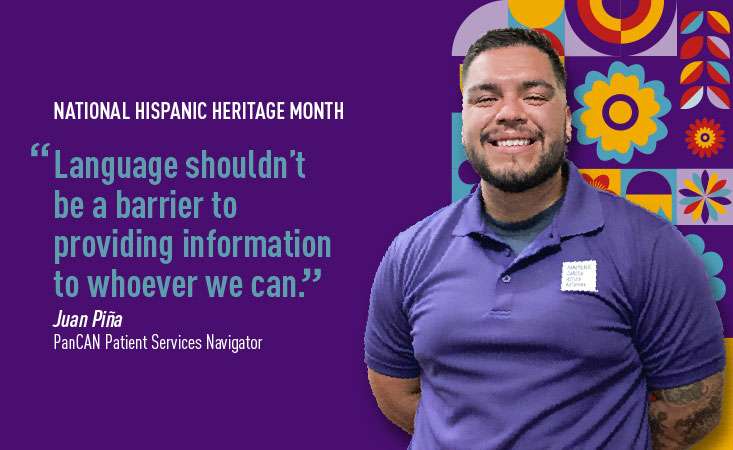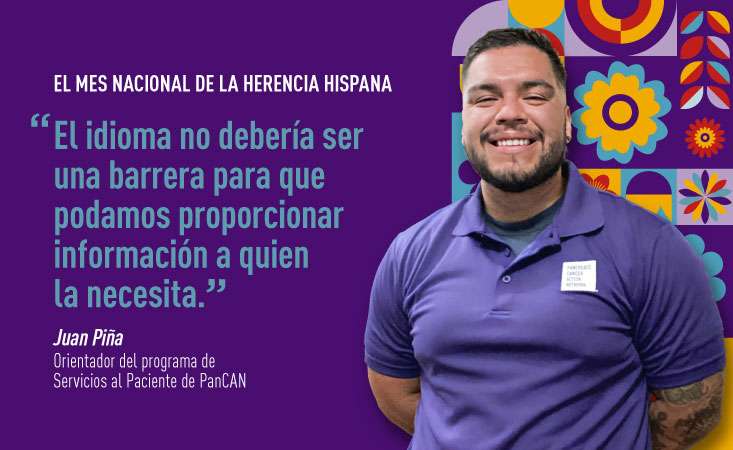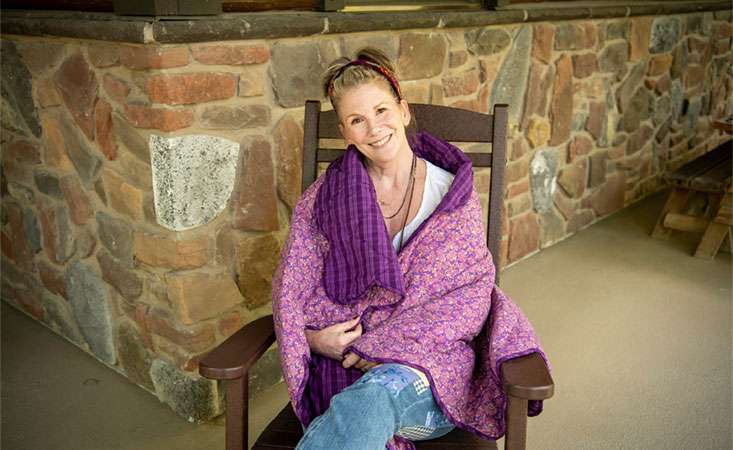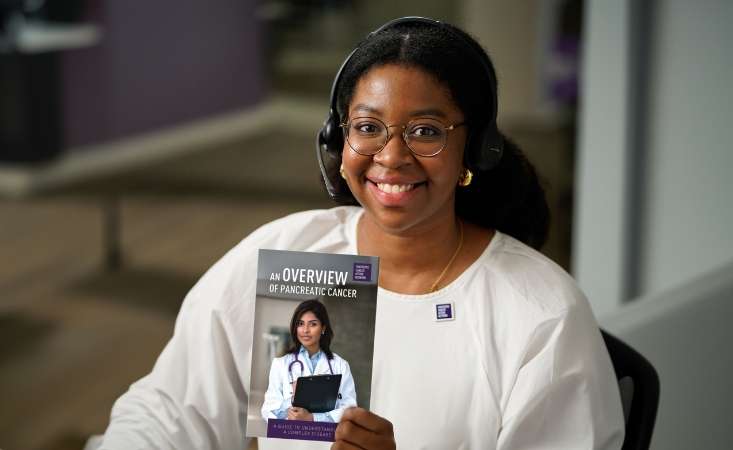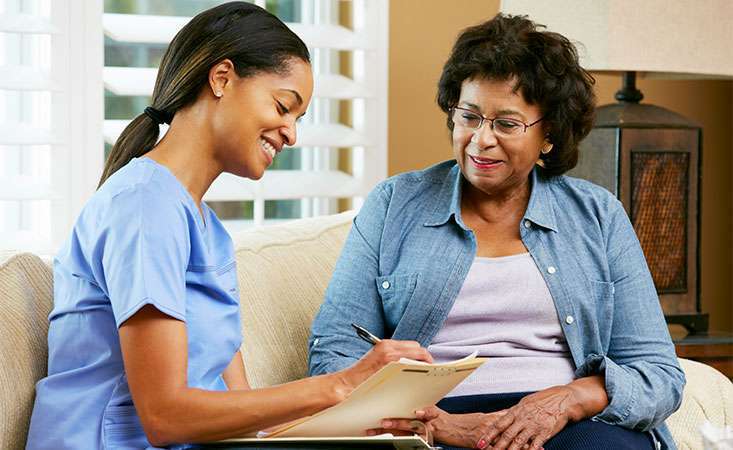
November is Caregiver Appreciation Month, and it goes without saying that caregivers are deeply appreciated for their selflessness. But in the midst of caring for others, it’s common to also be overwhelmed by the responsibility.
Here we share helpful tips for staying organized, leaning on others when needed and maintaining your wellbeing – all offered by our PanCAN Patient Services team, as well as a caregiver who has been there:
- Be proactive and take charge of the situation. Identify any challenges, find out what your loved one needs and follow through with what you have planned. If things go awry or you’re operating outside of your comfort level, don’t be afraid to seek advice or help from others. Just as you are selflessly caring for someone, there are people willing to help you when you’re in need.
- Caregiving can be a difficult task; however, it is also important for caregivers to rid themselves of guilt. It’s a tough job to care for someone, and there are bound to be bumps along the road. Remain optimistic and maintain a positive attitude in the face of adversity. No one can control what will happen, but we do have control over how we react. Your planning will help greatly with this. Remember, you’re not in this alone. If you’re experiencing a problem, chances are someone else has experienced the same issue. PanCAN’s Survivor and Caregiver Network connects survivors and caregivers with others experiencing similar situations. These volunteers can provide support and share their experiences, which you may find helpful.
- Know yourself and your limitations. You are already doing a tremendous deed by caring for another; it’s important not to push yourself past your boundaries and to recognize when you need to take a break so you won’t overwork yourself. A caregiver often may bite off more than they can chew, but it’s important to know your strengths and weaknesses and attempt to choose responsibilities accordingly. Defining roles for the patient can prove helpful as well. For many patients, cancer takes an emotional toll. A diagnosis can make him or her feel they have little control. Therefore, it’s beneficial for patients to exercise independence, if they’re able to.
- Communication goes a long way. Ask your loved one questions about their preferences. It’s important for the patient to know your preferences, as well. Garnering mutual respect will make caregiving much easier for both parties. It’s also important to keep in mind that your caregiving duties may change as the patient’s health changes.
- Learn about helpful services available in your area – transportation, health advocates, home-delivered meals, daily activities, etc. This will help take some of the workload off and will help your patient receive better care. PanCAN Patient Services can help you find resources in your area.
- Keep the patient involved. Cancer can make some patients feel dejected. In this case, it’s important to make them feel like they’re still part of what’s going on in the world. You can do fun things together that don’t involve much energy. For example, putting together a puzzle, completing a crossword puzzle or playing card games may help. You can also keep them up-to-date with news and current affairs, and have them stay in communication with family and friends. Arranging visits from those who are close to them are sure to brighten their day.
- There are often tasks that need to be completed that a caregiver will not ordinarily think of. Due to the illness, some patients may not be able to carry out tasks such as paying monthly bills, caring for a pet, or things as simple as taking out the trash. Caregivers should keep small tasks like this in mind.
Linda Hill, a caregiver from New Jersey and member of our Survivor and Caregiver Network, has experienced ups and downs caring for her husband, Bruce. She uses a simple technique that has helped her remain organized while providing care for her husband, who has pancreatic cancer.
“Although the ‘job’ of caregiver is often unexpected and overwhelming, there are ways to mitigate the stress,” Hill said. “I do it by being as organized as possible. I have a large notebook that I’ve divided into different sections – one to document my husband’s doctor appointments; one to document his CT scans, PET scans and blood work and the results of each one; and another section is for medical expenses. After I record the fees, I save the receipts in an envelope.”
This form of organization sees to it that nothing is missed or forgotten. Hill’s method of keeping a notebook has become extremely helpful in staying organized and keeps her privy to all her husband’s health needs.
She continued, “I have a section to document how Bruce is feeling, especially prior to our doctor appointments. I also have a section on nutrition where I list foods that should be avoided. I bring this notebook to every doctor appointment and chemo infusion. I write anything of importance in it right away so I won’t forget anything. All of this helps to keep me organized so I’m free to not only help Bruce, but to take care of myself as well. Anyone can do this. All you need is a notebook and a pen.”
Hill and our PanCAN Patient Services team recommend that caregivers PLAN, PLAN, PLAN.
Planning things out ahead of time will make you much less likely to be surprised by unexpected issues. Every patient has different needs and preferences – act in your best judgment to be sure every day is a good one for yourself and your loved one. Spread laughter as much as possible and try to be a creator of happiness. Thank you for all you do!
To get more tips and advice for caregivers, to access our Survivor and Caregiver Network or for any pancreatic cancer-related information, please contact PanCAN Patient Services.







